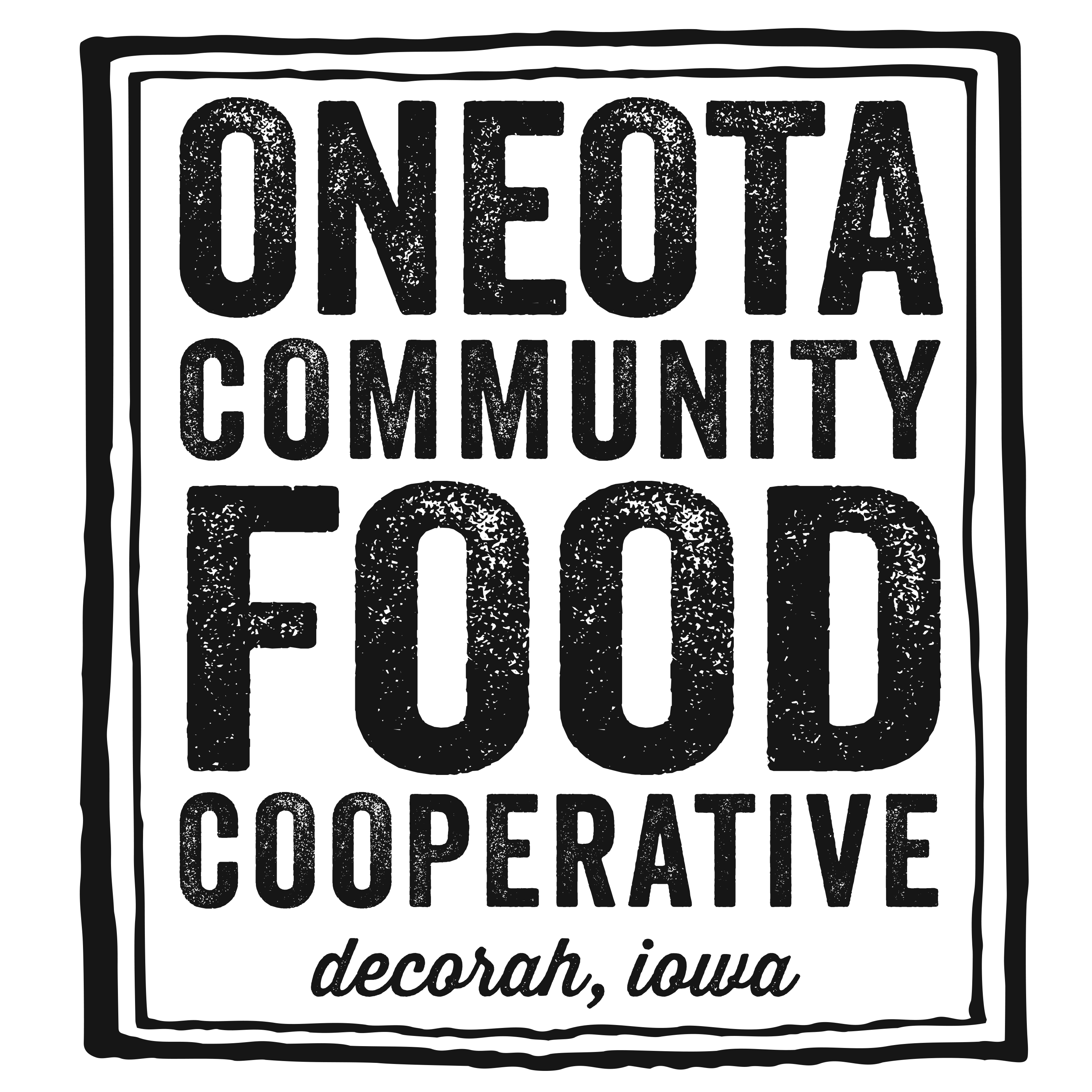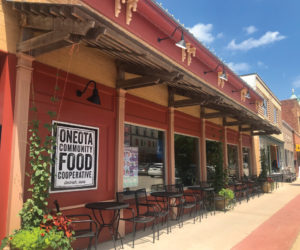By Nate Furler, Marketing Manager and Co-op Member-Owner
Food sensitivities, allergies and autoimmune diseases are a sneaky bunch. It’s been over fifteen years since my last glass of ice cold milk. Had I known it was going to happen, I would have relished each glass. Nothing could beat an ice cold glass of 2% with a chocolate chip cookie in my book. Especially if that chocolate chip cookie was baked by the skilled hands of my mom. But, as fate would have it, drinking and eating dairy wasn’t in my life-long deck of cards. That ice-cold, creamy bit of heaven and I parted ways.
Fast forward several more years and lo and behold, my go-to replacement for dairy – soy – was the new guy on the block. Chopping block, that is. After years of drinking, and loving, chocolate soymilk, I figured out that it, too, was giving me digestive issues.
No dairy, no soy, I can handle that. It’s a piece of cake, right? Well, cake without frosting. But, things could be worse. And, as fortune would have it, five years later along came worse – gluten.
At this point, all I could think was “you have got to be kidding me.” First the milk, and now the cookie?!
Not only did I thoroughly enjoy my mom’s chocolate chip cookies, but also my grandmother’s kolaches, a killer Swedish Roll recipe given to me by my baking professor, and most recently the fresh Waving Grains bread that is delivered daily to the Co-op. Gluten is my go-to.
Well, was I was a recent sufferer of acid reflux. Did the scope, changed my diet (in some ways), and took some pills. Nothing worked. Perplexed, I started talking to people. Not just anyone, but rather other staff members at the Co-op. After all, I remember joking with several employees over the years about the fact that many (not all, but many) employees at the Co-op should wear their food allergies/sensitivities/autoimmune diseases on their shirt instead of simply a name tag.
On the advice of many, I looked more deeply at gluten as a potential cause of my reflux. Some believed that it really might be the cause, while others simply said it couldn’t hurt to try.
After figuring out my sensitivity to dairy and soy the hard way, through trial and error, I decided to cut to the chase and I investigated testing. A former co-worker, and diagnosed celiac sufferer, strongly suggested the testing route. Though potentially expensive, it should be able to shed light on whether gluten, and possibly a whole host of other foods, could be causing my body distress.
There are a number of different avenues one can take when considering testing for suspected food-related sensitivities and the autoimmune disease – celiac disease. The route I chose to take was through a company named Enterolab. My former co-worker sent me to their website (www.enterolab.com) to learn more. It was enlightening – so much so that the next day I wound up ordering my test kits.
These tests were not blood-based, as is typically the case. Rather, these tests involved freezing, packaging, and sending my excrement (yes, poo) directly to the company for testing. In addition, I opted for a gluten sensitivity gene analysis which would test for the presence of genes associated with gluten sensitivity, celiac sprue or other autoimmune syndromes.
According to Enterolab, they have “developed a unique screening test for gluten sensitivity, as well as for many other antigenic food sensitivities, that is more sensitive and specific than tests in current use (U.S. and International patents issued). Our method utilizes stool rather than blood as the testing substrate; the rationale of using stool rather than blood for testing for food sensitivity is that immunologic reactions to proteins in the diet that cause these reactions are centered within the intestinal tract and not in the blood. We believe that our new tests can improve the health of millions of people wordwide.” Read more about the types of tests offered, and the company, by checking out www.enterolab.com. There is a wealth of information on their website.
I was both excited and nervous when my results appeared in my email inbox. I had a gut feeling the other shoe was about to drop, and I was right. As it turns out, my body does react to gluten and dairy, and soy, and chicken eggs – just for starters. The kicker was that the additional gene test showed that I have two copies of a gene that predisposes me to gluten sensitivity. Two copies is a stronger predisposition than having just one, and also indicated my reaction to gluten may be more severe.
Furthermore, according to Enterolab, having two copies of the gene means that each of my parents has at least one gene, and that any children I may have would also have at least one gene. Not only did this shed light on my own sensitivities, but it held impact for my biological family as well. (The disclaimer on the test results for the genetic test also reads as follows: This test was developed and its performance characteristics determined by the American Red Cross – Northeast Division. It has not been cleared or approved by the U.S. Food and Drug Administration.)
I can’t say that I was surprised by my results, but I was completely overwhelmed. This time, however, luck was on my side. I happened to work at the best place in Northeast Iowa to undergo a gluten-heavy to gluten-free diet transformation. Fresh and organic produce; bulk, whole foods; hormone and antibiotic free meats and dairy products are just the tip of the Oneota Co-op iceberg.
This community-owned cooperative grocery store caters to the special dietary needs of its many members and shoppers. At the Co-op, I can honestly say that we have come into contact with someone suffering from (nearly) every food sensitivity you can think of – gluten, dairy, soy, casein, MSG, corn, wheat, nut, carrageenan, and coconut. The list continues to grow.
It hasn’t been easy, but the Oneota Co-op has made a world of difference when it comes to my food issues. Food co-ops, in general, have established a network of grocers across the country that care about providing for the most inclusive dietary needs of the consumer. From organic and non-GMO to vegan and gluten free, the Co-op is the place to go when you want suggestions about your dietary needs. It has been here for me, and it will be here for you. Here’s to a healthier you.



